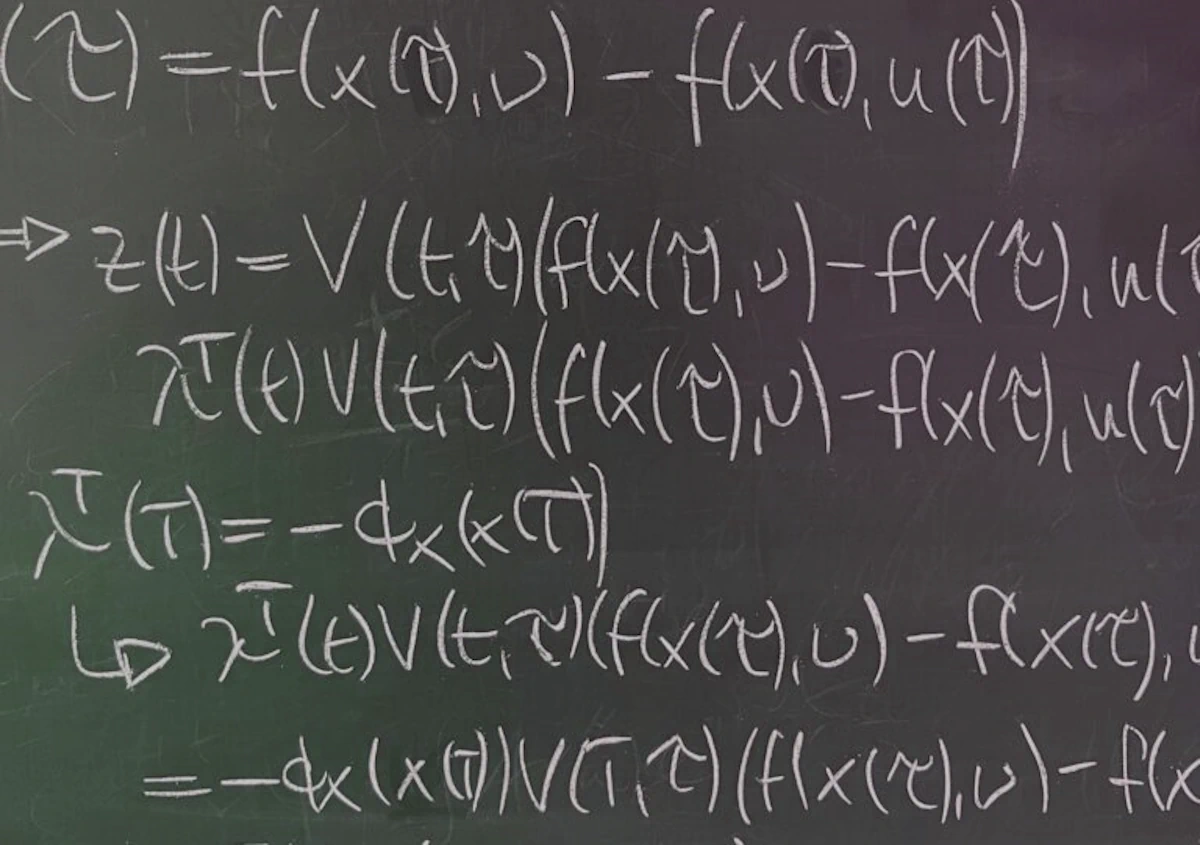-

Rabitz Lab research perspectives.
Read more: Rabitz Lab research perspectives.The notion of performing control operations to reach an objective is often a subject thought of as lying in the domain of engineering, but control is pervasive in the sciences. For example, the common action in a chemistry laboratory of choosing which chemicals to use can be viewed as a step in controlling a chemical reaction. Our research has a strong, but not exclusive, focus on control at the quantum mechanical level. In this context, we generally seek to alter the outcome of evolving molecular quantum dynamics phenomena dictated by Schrödinger’s equation, often by applying a shaped laser pulse referred…
-
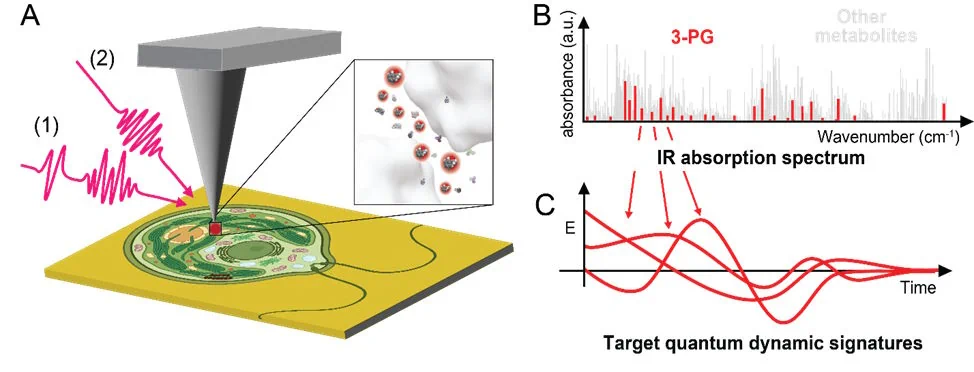
Nanoscale imaging and spectroscopy.
Read more: Nanoscale imaging and spectroscopy.The function of all living cells depends on the subcellular compartmentalization and spatial distribution of a broad range of small molecules, from metabolites to signaling molecules and cellular building blocks. Determining the spatial distribution of small molecules within cells is therefore crucial for understanding fundamental cellular mechanisms. And yet, we presently lack the ability to determine the subcellular distribution of the vast majority of these molecules.
-
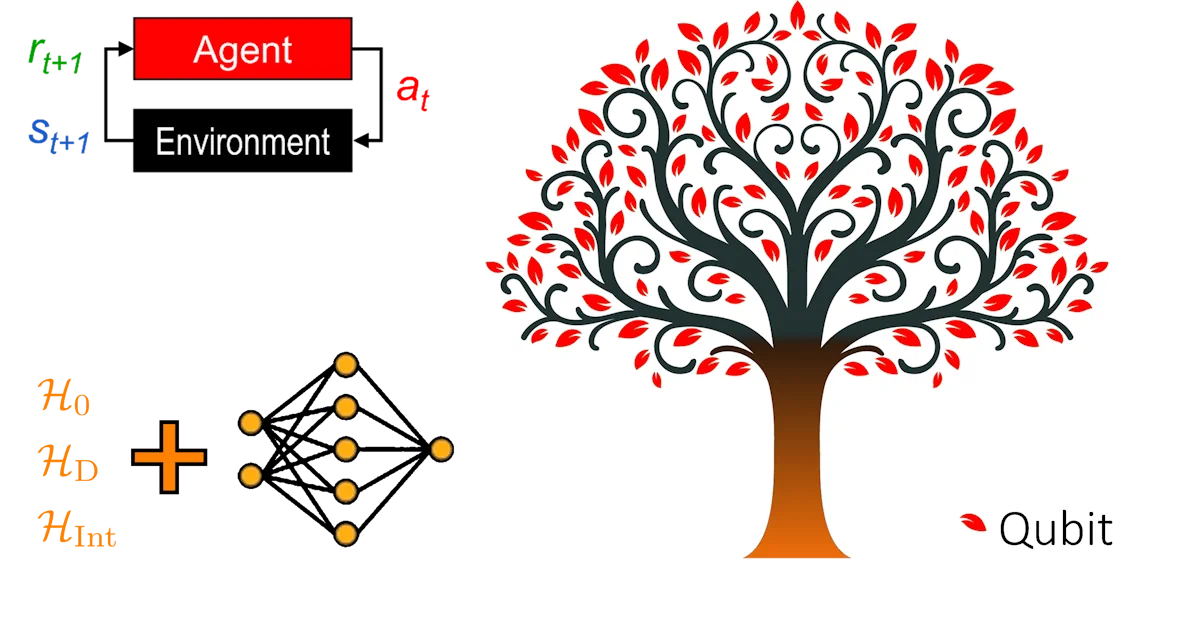
Quantum information sciences.
Read more: Quantum information sciences.Realizing the promise of practical quantum information processing requires adept management of the intricacies of interfacing with quantum system, particularly in navigating the complexities of information extraction during system characterization, calibration, and correction. This endeavor demands a delicate balance: the resource consumption must be sufficiently low and yet swift enough for feedback and periodic recalibration.
-
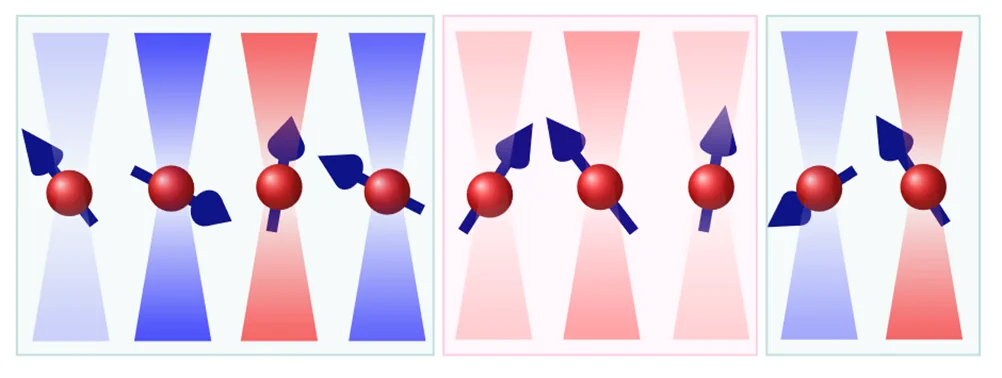
Quantum statistical mechanics of complex systems.
Read more: Quantum statistical mechanics of complex systems.Understanding entanglement propagation in out-of-equilibrium many-body quantum systems is important for both fundamental and practical reasons, especially given the new developments regarding the interrelationship between entanglement and thermodynamics in quantum systems. However, understanding the dynamics of entanglement requires access to the exponentially large Hilbert space of the system, which is highly challenging.
-
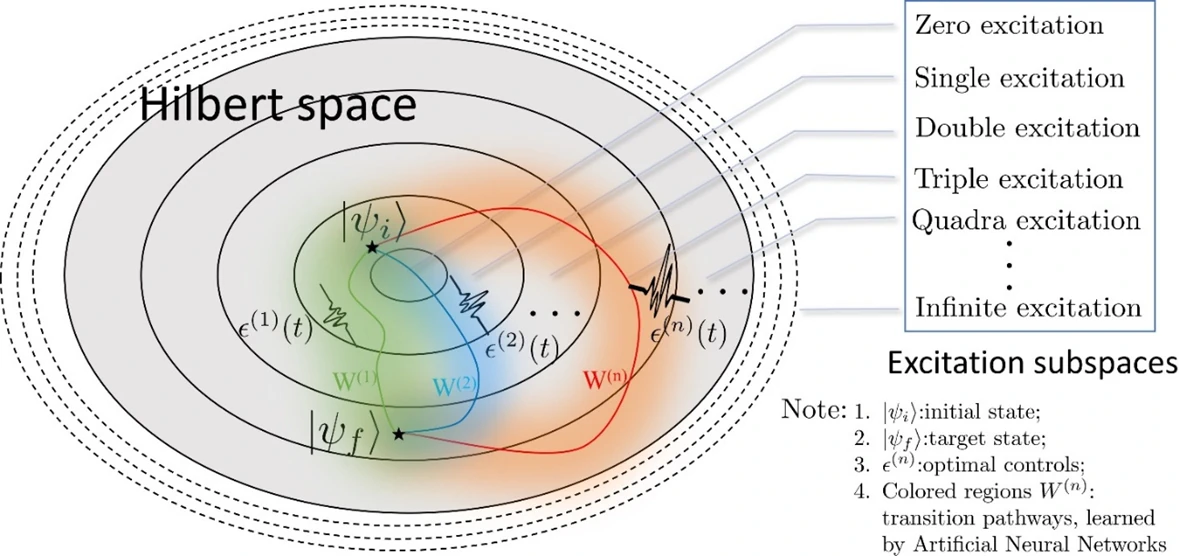
Machine learning guided optimal control of quantum dynamics.
Read more: Machine learning guided optimal control of quantum dynamics.Efficient and accurate characterization of the time evolution of many-body systems controlled by external fields is of fundamental importance to many applications such as laser-driven chemical reactions and quantum computing. A full-dimensional description of such many-body dynamics is prohibitively expensive when large number of subsystems (e.g., spins in a spin-chain and atoms in a large molecule) are involved due to the exponential increase of the system state space dimensionality.
-
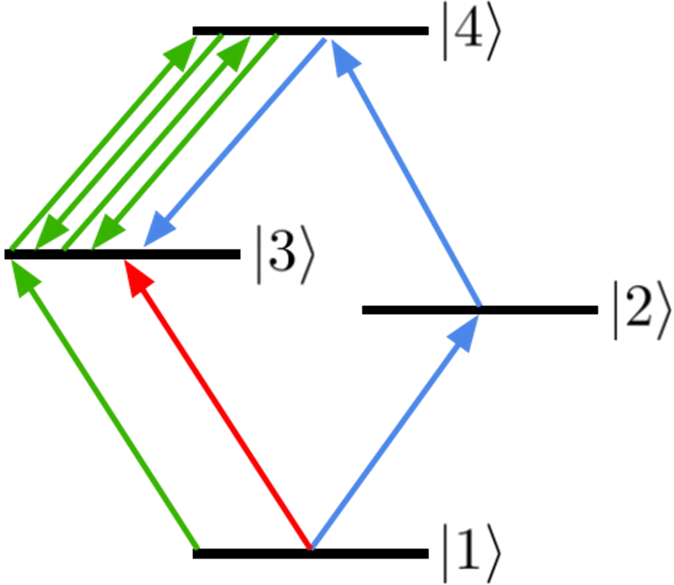
Determining the mechanisms by which a control manipulates quantum dynamics.
Read more: Determining the mechanisms by which a control manipulates quantum dynamics.Typically, when we want to perform a specific action on a quantum system, like implementing a gate, we go to the computer and ask it to create a control pulse. This works fine in practice, but typically the pulses are very complicated and it is hard to understand the underlying dynamics of what is going on. Mechanism is how we describe this intricate time evolution of the system.
-
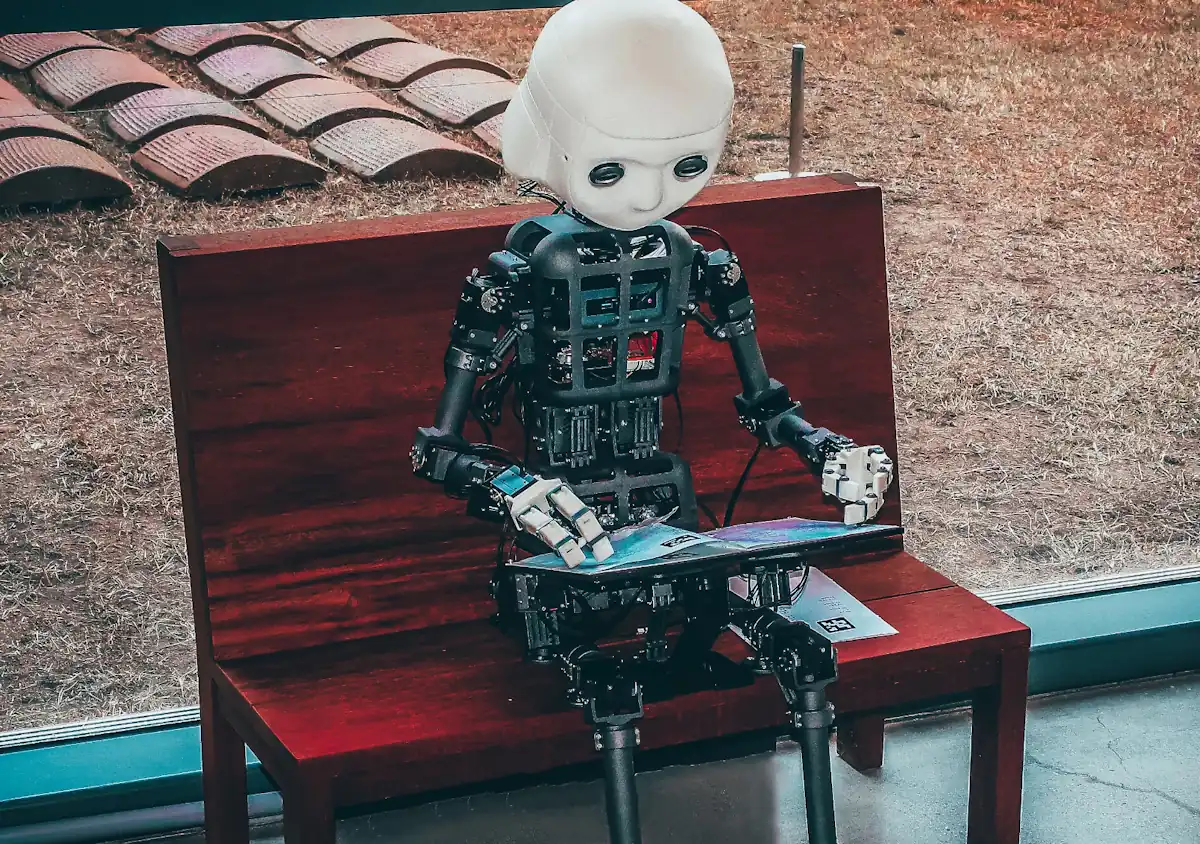
Utilizing machine learning to accelerate the solution of dynamical equations in the sciences.
Read more: Utilizing machine learning to accelerate the solution of dynamical equations in the sciences.Most dynamical systems can be modeled using differential equations. However, solving dynamical equations, even for linear equations, across the entire vector space can be challenging. Take quantum dynamics, for instance, which is generally governed by time-dependent Schrodinger equations. Propagating the quantum state at each time step for high dimensional systems, such as those with numerous energy levels or spins, demands significant computing power. This complexity issue carries on to applications relying on the solutions of the dynamical equation, e.g., optimal control.
-
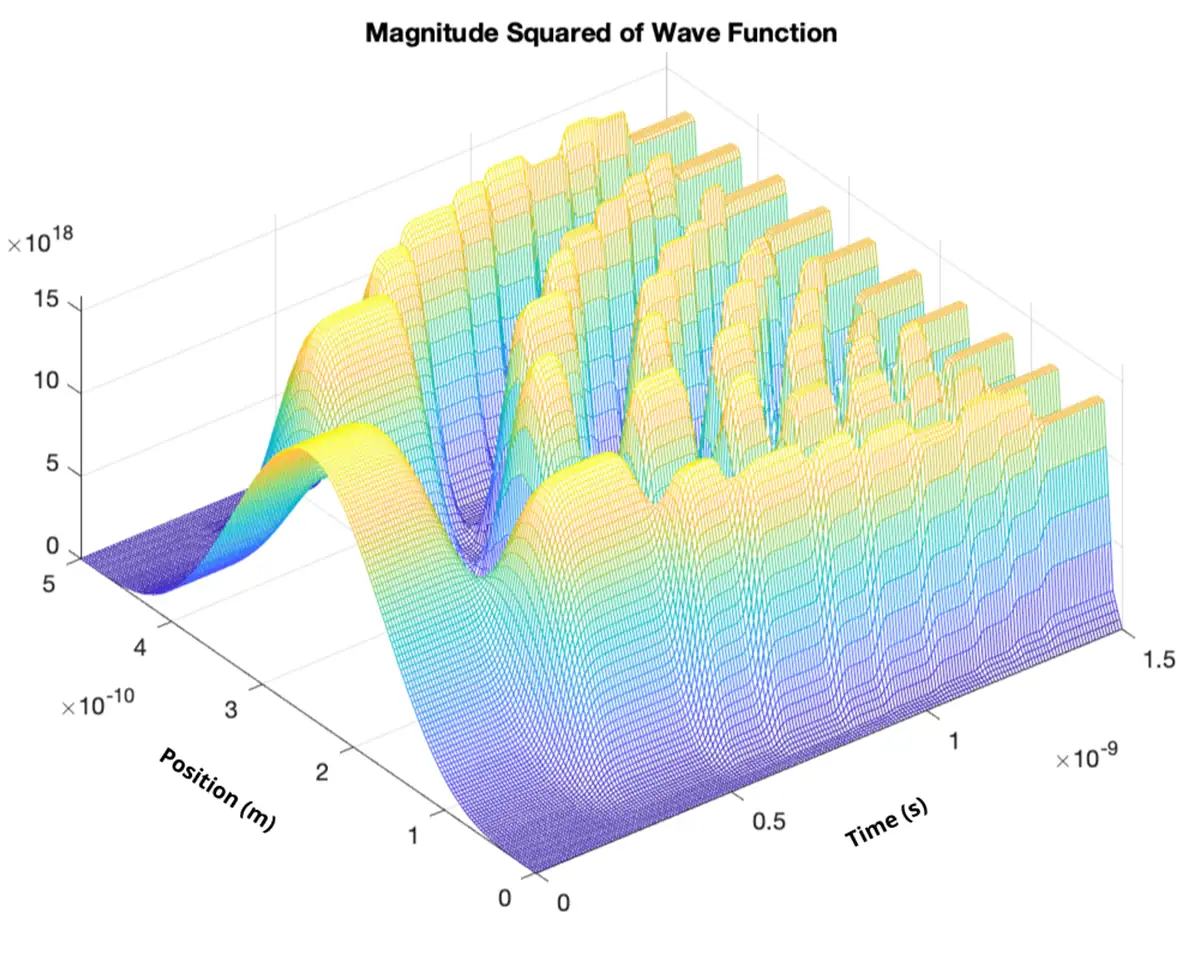
Solving Schrödinger’s Equation by Tracking the Physical Objective.
Read more: Solving Schrödinger’s Equation by Tracking the Physical Objective.Our project is concerned with developing quantum control strategies to achieve physical objectives by means of recursive observable tracking. More specifically, we study how to construct time-dependent electric fields which force observable expectation values to increase, decrease, or follow a predefined function.


